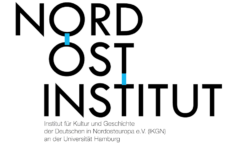Everyday Life and Memory. Russian-German and Jewish "Soviet baggage" after the Emigration
A research project by Daniel Gebel (Advised by Prof. Dr. Hans-Christian Petersen)
How do Russian-Germans and Jewish contingent refugees in Germany remember their Soviet everyday life, and what significance does this period have for their current self-image? These questions are the focus of the subproject "Everyday Life and Memory". With the help of biographical interviews and corresponding archival studies, the everyday history of the late Soviet Union and the "Soviet baggage" associated with it will be examined. The project focuses on the district of Cloppenburg as a focal point of Russian-German life in the Federal Republic. It concentrates on the Jewish communities in Oldenburg and possibly also Bremen, whose members come to a large extent from the former Soviet Union. Both groups are to be examined from a comparative perspective to determine to what extent factors such as country of origin, religious affiliation, family relations or ethnic background influence the "Soviet baggage" and how this manifests itself in the everyday life of people today. Two questions guide our findings: On the one hand, an approach to the late Soviet history of events (What is remembered?), and on the other hand, the question of the forms and changes in meaning of what has been handed down (How is it remembered?). This approach is based on the knowledge of the social nature of human experience and memory, according to which we are always dealing with an interaction between individual and collective levels of memory, with context-dependent narrative structures and with a tension between communicative memory and cultural memory striving for coherence.







